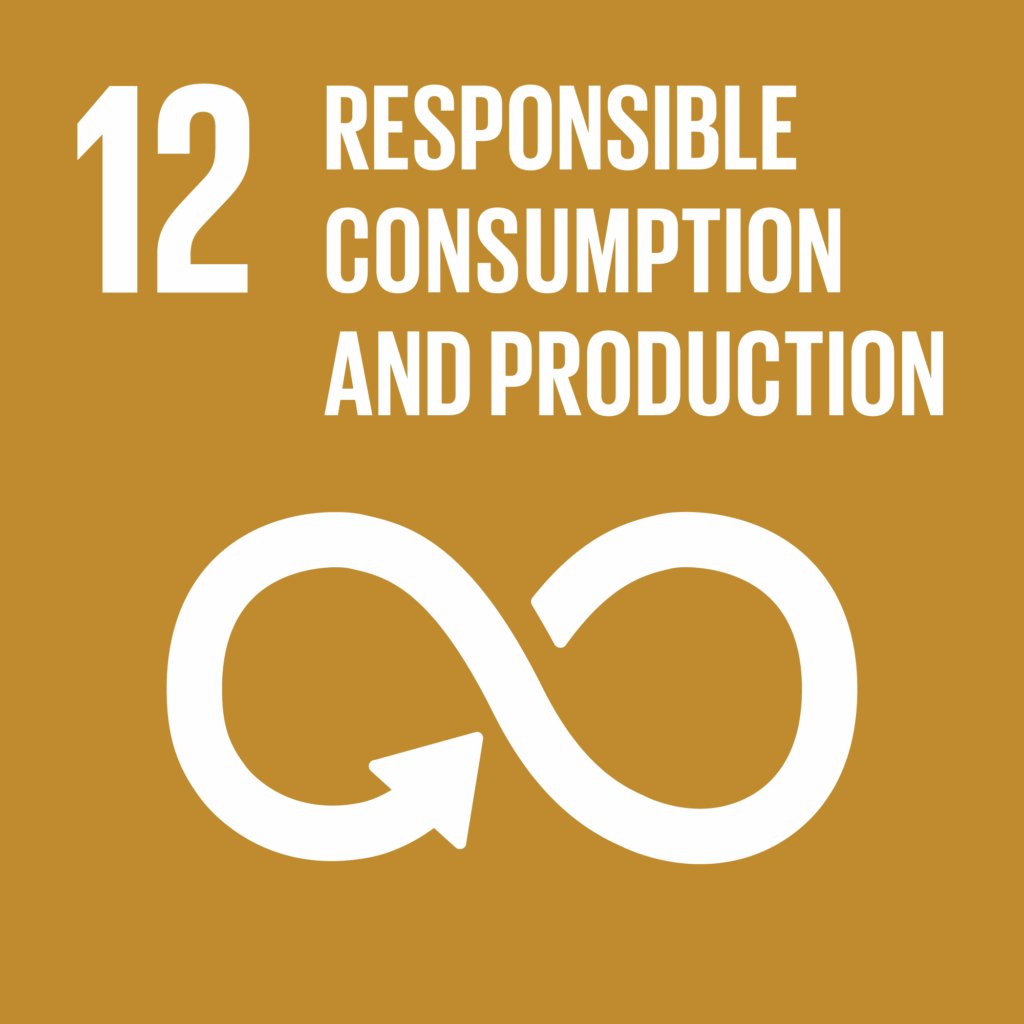SDG 12 – Responsible Consumption and Production

The twelfth United Nations Sustainable Development Goal (SDG 12) focuses on “ensuring sustainable consumption and production patterns.” Today, high-income countries leave a much larger ecological footprint than low-income countries. This means that the material footprint per capita is up to ten times greater than in low-income countries. In terms of food, the United Nations reports that 13.2% of the food produced worldwide is wasted in the supply chain and is therefore lost, even though 828 million people were affected by hunger in 2021. To counteract this, 62 countries and the European Union have introduced 485 measures for sustainable consumption and production. Universities can contribute by creating a framework that ensures sustainable consumption and efficient use of resources in areas such as food consumption, waste disposal, waste minimization, and recycling.
Copyright: United Nations
FAU has a policy in place to ensure ethical sourcing of food and supplies, emphasizing both fair trade and sustainability:
Since 2019, FAU has held the title of Fairtrade University, meaning that Fairtrade products are systematically promoted and used across campus—including in cafeterias, meetings, and official events. To maintain this status, FAU has established a dedicated steering group consisting of student, faculty, and administrative representatives, and organizes recurring awareness-raising events and workshops on ethical sourcing.
- Sustainable Procurement Guideline (“Leitfaden für nachhaltige Beschaffung”) is publicly available, recommending best practices for sourcing goods and supplies in line with ethical and sustainability standards.
- FAU has an ethical sourcing policy for food and supplies in its canteens: procurement prioritizes regional and seasonal products, integrates organic and Fairtrade-certified items, and ensures sustainable supply chains. The policy also promotes diversity and environmental responsibility by continuously expanding vegetarian and vegan options.
FAU has implemented institution-wide policies regarding waste disposal including hazardous materials and the minimization of single-use plastics and other disposable items, ensuring that university operations align with the principles of responsible consumption and production. FAU is ensuring that these guidelines also extend to outsourced services and the supply chain.
- Waste disposal and hazardous materials
Adoption of guidelines for waste disposal and processing – including the disposal of hazardous materials and tracking the amount of waste generated, recycled, or sent to landfills. - Minimization of single-use plastics and disposable materials
FAU policies discourage the use of single-use plastic products, disposable packaging, and other short-lived materials. Staff and students are encouraged to choose reusable alternatives and to avoid unnecessary waste. - Sustainable procurement and packaging
In procurement and shipping processes, FAU promotes the selection of environmentally friendly packaging alternatives and encourages suppliers to minimize the use of disposable items. This policy contributes directly to waste reduction and the Circular Economy. - Awareness and integration
These policies are reflected in the goal of contributing to a circular economy, which is part of FAU’s sustainability strategy coordinated by the Commission for Sustainability. FAU acts in compliance with legal principles and obligations under the German Closed Cycle Management and Waste Act (KrWG) to support circular economy. Regular campaigns and informational resources raise awareness among the university community about the impacts of plastic waste and disposable consumption. - Reporting and Tracking
FAU is publishing a sustainability report detailing FAU’s consumption and waste statistics and outlining the university’s future goals on the path to sustainability. The amount of waste generated at FAU is tracked on a yearly basis. Results for 2024:- Total amount of waste generated: 1171 t
- Thereof recycled: 1147 t
- Thereof sent to landfill: 24 t
- Total amount of waste generated: 1171 t